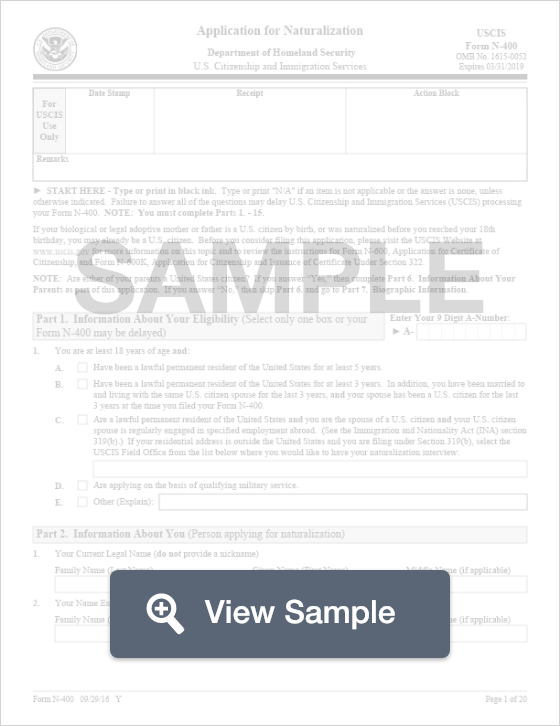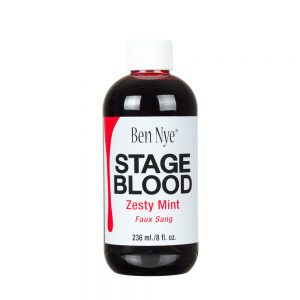Is there anywhere to donate unused medication?
Nov 09, 2020 · How Donating Unused Medication Can Help. Drug donation services like SafeNetRX and SIRUM represent an option for individuals and organizations that want to help reduce prescription drug waste. These nonprofits receive and manage tons of donations, inspecting and processing each one. Then, they match donations with requests from eligible …
Where to donate unopened medications?
Nov 09, 2021 · Drug donation programs are available in most states as a way to dispose of unneeded medicines and redistribute the drugs to people who need them. 352-771-2700 By The Recovery Village
Where to safely dispose your old medications?
Donate medications. We accept both opened and sealed bottles. • Mark-out the patient name, address, and doctor information. • Do not remove the medication name, strength, or expiration. • We do not accept narcotics, sleeping medications, or tranquilizers. View a list of HIV medications.
Where can I recycle old medications?
Prescription Drug Donation Program Participating Provider Form Please Fax or Scan Completed Participating Provider Forms to: Contact Info: Fax: (512) 776-7489 Email: [email protected] For Questions, Comments, or Concerns Please Call: …

What to do with medications after someone dies?
The best way to dispose of unused medications is to take them to a local take- back event, or authorized prescription drug drop box. A list of local medication drop-off locations can be found at www.dumpthedrugsaz.org. bags or containers. These products can be purchased online or in some pharmacies.
Where can I donate medications in California?
Better Health PharmacyCalifornia's first surplus prescription medication program recently opened its doors. Better Health Pharmacy is dedicated to collecting and dispensing unused, unopened, and unexpired medications from state-regulated facilities to patients for free.Feb 24, 2016
What do you do when you don't need medication?
Put the medication in a sealable container, such as a plastic bag or coffee can. Mix the medication with an undesirable substance such as cat litter or used coffee grounds. Do not crush pills, tablets, or capsules. Seal the container and be sure to put it in the trash, not the recycling.Jan 31, 2022
Can I donate unused prescription drugs in California?
Only medication donated in unopened, tamper-evident packaging or modified unit dose containers that meet USP standards can be donated to the program, provided that lot numbers and expiration dates are affixed. Medication donated in opened containers cannot be dispensed by the program.Jan 5, 2006
Can I donate unopened medication in California?
The Process. A California law passed in 2005 gave permission to different counties to accept and redistribute unexpired prescription medications in unopened, tamper-evident packaging.
Can you flush pills down the toilet?
DON'T: Flush expired or unwanted prescription and over-the-counter drugs down the toilet or drain unless the label or accompanying patient information specifically instructs you to do so. to a drug take-back program or follow the steps for household dis- posal below.
Can medicine be returned to pharmacy?
The Return Unwanted Medicines (RUM) Project is a subsidised national scheme that allows unwanted medicines to be collected by any community pharmacy and disposed of by high-temperature incineration.Jun 1, 2018
How to dispose of a pill?
For all substances not on the flush list, follow these steps based on EPA and FDA recommendations to dispose of them via your household trash: 1 Empty the bottle or container of all medicine. 2 Thoroughly mix the pills or tablets with an undesirable substance, such as cat litter or used coffee grounds. 3 Place the mixture in a disposable container. 4 Scratch off or cover all personal information on the medicine bottle with a permanent marker. 5 Dispose of the container holding the mixture and the empty bottle in your household trash.
Why are prescription drugs dangerous?
Prescription drugs left in the home, especially if they aren’t properly stored, are dangerous . The CDC estimates 50,000 young children are sent to the emergency room every year because they get into medicine while adults are not watching. Pets can also ingest drugs that are poisonous to them, such as NSAIDs like Advil.
What are controlled substances?
Controlled substances are drugs that are regulated under federal law and can cause physical and mental dependence. Some examples include opioids like Vicodin and anti-anxiety medications like Xanax. The Drug Enforcement Administration keeps a list of all controlled substances and their schedule (PDF, 503 KB).
How to get rid of a swollen ear?
Empty the bottle or container of all medicine. Thoroughly mix the pills or tablets with an undesirable substance, such as cat litter or used coffee grounds. Place the mixture in a disposable container. Scratch off or cover all personal information on the medicine bottle with a permanent marker.
Who is Erika Kimball?
Erika Kimball, RN, a health care sustainability consultant, said prescribers are also key figures in patient education on proper medication disposal methods. “Discussing options for disposing of unused drugs can be a routine part of discharge instructions in the hospital,” Kimball told the American Journal of Nursing in 2015. “And it can be done in the physician’s office as well, when a patient is given a prescription.”
Can you flush a medicine down the toilet?
Safe Medication Disposal in the Household. If a drug take back service is not readily available, do not flush the medicine down the toilet or drain unless it is one of the few drugs on the FDA’s Flush List. These are substances that are especially harmful and could be fatal in a single dose.
Donating Prescription Medicine
Can unused prescription drugs be donated? The answer is yes! Although people may be unaware of the available programs, drug donating is allowed in 38 states, and there are laws in place to organize and regulate the process.
What Are the Benefits of Donating Medicines?
People may be unaware of medicine donations programs or think there are few advantages to these programs. In reality, the benefits of donation programs are numerous and include:
What Are the Drawbacks of Medication Donation?
Currently, the most significant drawback to medication donation is the inconvenience of having to collect the medicine, get into the car and deliver it to an approved location. Depending on the state and the person, this could be a minor issue or one significant enough to hinder the process.
What Can Be Done to Improve Medicine Donation?
Medication donating programs are doing well, but they could do more to help those in need. In the future, these programs could be more effective if they:
Recovery is possible. We are here to help
Global Alliance for Patient Access. “ The Role of Drug Donations in Expanding Access to Medicines .” August 2017. Accessed August 8, 2019.
San Francisco
NEW LOCATION#N#Mail Access#N#2261 Market St#N#(between Noe St & Sanchez St)#N#Mon-Fri 10:00am-4:30pm#N#Sat noon-4:00pm
Northern CA
Spahr Center#N#150 Nellen Ave., Corte Madera#N#Mon, Wed, Fri 9am-5pm Tues, Thurs 9am-7pm#N#[email protected]#N#leave meds for Andy
Southern CA
Los Angeles LGBT Center#N#McDonald Building#N#1625 N Schrader Blvd, Los Angeles#N#Mon-Fri 9am-9pm; Sat 9am-1pm#N#lalgbtcenter.org#N#drop off box is inside the pharmacy
Why donate?
It’s simple, really. 50 million people in the United States skip medication due to cost. Medication destruction costs $1-$3 per pound. And 70% of waterways are contaminated with pharmaceutical runoff. Your donations make a real, lasting impact.
Pick your program
Donation is always free because we believe every single organization in the US should be donating rather than destroying their surplus medications. We do offer some paid options that make donation even more convenient for organizations.
FAQ
Can individuals donate? What if I have extra medicine in my medicine cabinet?#N#Yes. See#N#www.sirum.org/individuals/#N#and we can help your medication get into the right hands through one of our partners.
What is a drug donation program?
Pharmaceutical donation and reuse programs are distinct prescription drug programs providing for unused prescription drugs to be donated and re-dispensed to patients. Such drug repository programs began with state legislative action in 1997. As of fall 2018 there are 38 states and Guam with enacted laws for donation and reuse.
Which states have drug donation laws?
Virginia amended legislation and New Hampshire sent legislation to the Governor pertaining to their drug donation and reuse policies. Wyoming passed legislation appropriating $400,000 to help operate the program in the state. 2019. Idaho updated previous law to allow expanding donors and recipients.
How many states have drug redistribution programs?
As of mid-2018, 38 states and Guam had passed laws establishing drug redistribution programs. Many of these programs are not operational or small, but successful programs are growing. A few measures have been repealed.
What are the benefits of drug donation?
Drug donation programs offer a variety of key benefits to patients, healthcare facilities, taxpayers, and citizens at large. Patients that had been forced to decide between paying for groceries or prescriptions in previous months no longer have to make those decisions, and can trust that they will receive the medication they need. An estimated seven percent of people in surrounding Santa Clara County are uninsured, and can now receive help acquiring the prescriptions they require without having to worry about how they are going to pay for them. The Better Health Pharmacy will also provide great relief to those that rely on Medicare, for there are a number of gaps when it comes to insurance coverage of certain prescriptions that require patients to pay out of pocket.
What is the purpose of the Better Health Pharmacy?
Ultimately, the goal of this organization is to provide citizens that cannot afford to pay for their prescriptions access to the medication they need at absolutely no cost . This program relies on donations of unused, unopened, and unexpired prescriptions from state-regulated facilities, such as licensed clinics and hospitals, in order to provide their patients with what they need. In the process of doing so, the Better Health Pharmacy also prevents these chemicals from polluting the airways, landfills, and waterways and saves taxpayers and healthcare facilities a great deal of money.
What is sirum medical?
SIRUM, a nonprofit organization founded by students from Stanford University provides logistics and tools that allow for the safe donation of unused prescriptions, and therefore serves as a major connection between donating facilities and recipient safety-net clinics.
Does Better Health Pharmacy accept prescriptions?
The Better Health Pharmacy receives donations of prescriptions that treat asthma, diabetes, and countless other ailments. The pharmacy does not accept nor dispense prescriptions for controlled substances such as narcotic painkillers like OxyContin or Vicodin; anti-anxiety medications like Xanax or Valium; and ADHD/ADD medications like Adderall or Ritalin. Patients can check an online listing to see if the prescription they need is available at the pharmacy before they go, and there are no copays required. All that patients need to bring with them is a valid prescription and form of identification.

Popular Posts:
- 1. what drugs do they test for when you donate plasma
- 2. where can i donate a old tvs
- 3. how to donate plasma for money nyc
- 4. what companies in carrollton ga donate to nonprofits for raffles
- 5. where to donate scrapbook supplies boise
- 6. how much do you make to donate sperm
- 7. how much blood can a dog donate
- 8. how much to donate hair
- 9. how long after taking antibiotics can you donate plasma
- 10. what happens to your remains if you donate your body to science